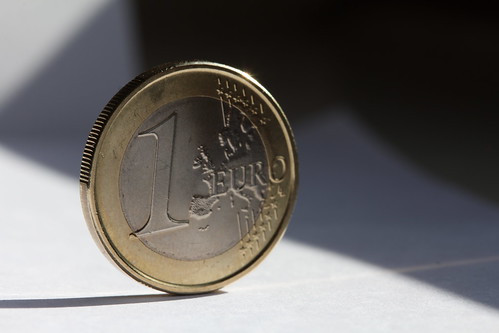
Greek Prime Minister Antonis Samaras meets Eurogroup chief Jean-Claude Juncker in Athens on Wednesday, launching a diplomatic marathon to win better bailout terms for Greece.
In an interview to German daily Bild, Samaras said that Greece needed more time to make spending cuts and reforms that are necessary to unlock the next installment of the country's EU-IMF rescue package on Wednesday.
"All we want is a little 'breathing space' to revive the economy quickly and raise state income," he was quoted as saying.
"Let me be very clear. We are not asking for additional money. We are sticking by our commitments and are meeting all our requirements," he underlined.
Greek daily Kathimerini reported on Wednesday that the Greek prime minister will try to secure Juncker's full support for the government's plans to meet its commitments to its European partners.
Following Juncker's visit, the Greek premier will meet German Chancellor Angela Merkel in Berlin on Friday and French President Francois Hollande in Paris on Saturday.
Merkel and Hollande, leaders of the eurozone's top two economies, are set to meet in Berlin on Thursday, with Greece expected to be part of their agenda.
"The aim is to discuss flexibility in return for assurances and the two want to have a common line before the arrival of the Greek prime minister," Claire Demesmay, of the German Council on Foreign Relations, told AFP.
Ulrike Guerot, a political scientist at the European Council of Foreign Relations, said the meeting would be closely watched in view of crucial decisions expected next month.
"The markets want to know if visions are the same in Berlin and Paris," she said.
France is considered more flexible than Germany towards modification of the austerity programme that is part of Greece's rescue deal.
Vokler Kauder, parliamentary head of Merkel's party, told German weekly Der Spiegel on Sunday that Greece had "no room for manoeuvre".
Greece is in the process of finalising a spending cuts programme of about 11.5 billion euros ($14.3 bn) for 2013 and 2014, necessary in order to access the next installment of its bailout package that amounts to nearly 31 billion euros.
Most cuts are reported to come from salaries, pensions and benefits and have caused friction within the conservative-led, three-party coalition government.
A Greek finance ministry source told AFP on Wednesday that an additional 2-2.5 billion euros in spending cuts "cannot be ruled out" because of the reduction in salaries and pensions that will diminish the taxes collected by the state.
The so-called troika of auditors of Greece's international EU, IMF and European Central Bank creditors is expected in Athens in September, to report on the country's progress in implementating its reform programme.
The report will determine whether Greece will receive the next much-needed payment from its rescue package.
The country has fallen behind in the implementation of structural reforms, as back-to-back elections in May and June resulted in a two-month political deadlock.
But in seeking a two-year reprieve Samaras sould be able to invoke a clause in the second bailout package signed in March that allows for an extension to the programme in case of a "deeper than expected recession."
As the country struggles with its fifth year of recession, predictions now are that its economy will contract 7 percent in 2012, considerably more than the initial 4.5 percent estimate.
Last week Juncker played down rumours of a possible Greek exit from the eurozone, which have recently become louder.
"No, I don't think it will happen," he told Austrian daily Tiroler Tageszeitung in an interview on Saturday.
"Because I believe that Greece will try to redouble its efforts to meet its targets there is no reason to expect this exit scenario will become relevant," he added.
These comments followed earlier statements Juncker made to Germany's WDR public broadcaster in early August, that a Greek exit from the eurozone would be "manageable" but not "desirable."
European Commission President Jose Manuel Barroso had also underlined the need for Greece to deliver on its obligations, during a visit to Athens at the end of July.
"To maintain the trust of its European and international partners, the delays must end. Words are not enough, actions are more important," Barroso had said after meetings with the premier and Finance Minister Yannis Stournaras.
AFP, photo by alf.melin









































